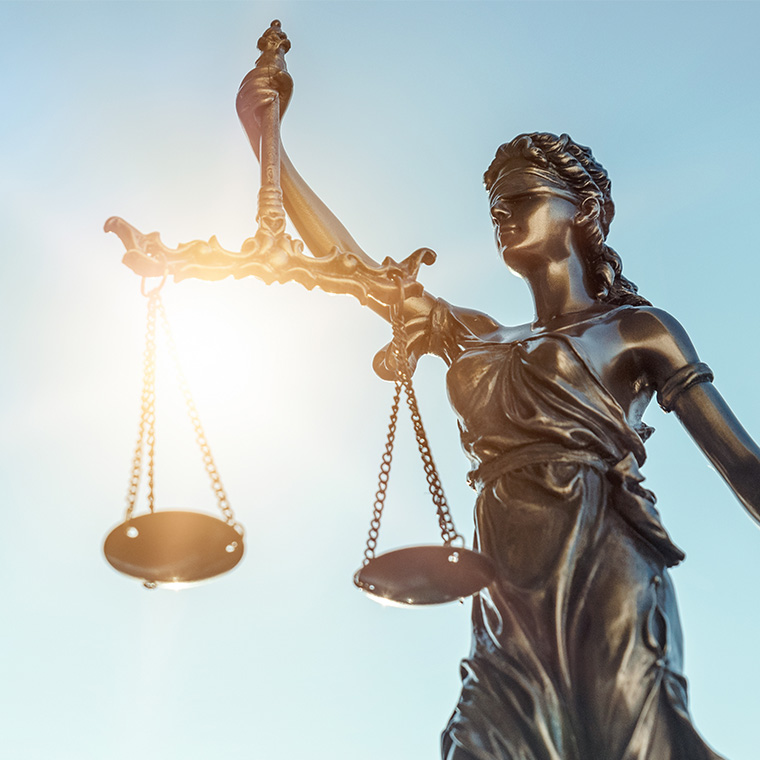
Round Rock Trial Lawyers
Attorneys for Trials & Appeals in Texas
The idea that every accused person should get a fair trial is a central tenet of the American criminal justice system. Yet that idea does not always translate into the real world. In an ideal world, every defendant would get more than a lawyer–a defendant would get counsel that truly believes in them, who zealously advocates for their interests and doggedly challenges the prosecution at every step.
At Pennington Law PLLC, our Round Rock trial lawyers might not be able to change the world–but we can sure make that ideal a little more real for every client who walks through our doors.
We help defendants throughout the systems in Williamson County and Travis County. Our attorneys serve both the English and Spanish-speaking communities and offer free consultations and payment plans. Call Pennington Law PLLC today at (512) 877-4384 or contact us online.


Our Practice Areas
Explore the legal services we provide at Pennington Law.
The Trial
Opening Statements
The trial will start with opening statements. The prosecution goes first, articulating to the jury the case they will make. The defense lawyer then summarizes its arguments. It’s worth noting that even though no evidence is yet being presented, these opening statements are still a key time in forming the jurors. It’s a time when an observant trial attorney can start to get a sense of how they are connecting with the jury, what lines of argument seem to resonate and with what jury members. The information gleaned here can be leveraged later on at trial.
Witness Testimony
A lawyer’s ability to adapt quickly to information and display continual fresh thinking is then tested through the trial. The prosecution will call its witnesses. While the defense knows what evidence the prosecution has and who will be summoned to testify, what the witness will say on the stand is not known beforehand. Therefore, lawyers who make a point of always bringing fresh eyes to each stage of a case, can be better prepared to adjust quickly and cross-examine the witness more effectively. Defense counsel then gets their own opportunity to present witnesses.
Closing Statements
Closing statements are another chance to drive home the case that was outlined in the opening statement and then developed throughout the trial. But in this case, the defense attorney gets to go last, meaning we can get the last word before the jury goes into deliberations. It’s a good opportunity to remind jurors that unless they are convinced beyond a reasonable doubt of our client’s guilt, they are obligated to vote for acquittal.
When the jury comes back, we naturally hope the result will be an acquittal, at which point the defendant can go home in peace. But the unfortunate reality is, that sometimes guilty verdicts do come back. But all is not lost. The appeals process may be an option.
The trial and appeal are two distinct areas of life, and we can help with both. Call Pennington Law PLLC today at (512) 877-4384 or contact us here online to set up a free consultation.

Hear From Our Happy Clients
At Pennington Law PLLC, your satisfaction is our priority! See for yourself what our clients have to say about working with us.
-
"I highly recommend Tyler Pennington with Pennington Law."
This was a tough case and Tyler did an excellent job representing me.
- BK -
"We highly recommend Tyler to any family in need of a skilled and compassionate Attorney."
Tyler handled the process with care, fairness, and compassion, making an incredibly difficult situation more manageable for our family.
- Kim W. -
"Tyler Pennington has been a dependable and knowledgeable attorney"
His professionalism and attention to detail have consistently made a challenging process much more manageable.
- Michael A. -
"We will always be grateful to Tyler and his team!"
I truly am impressed at not only how professional, knowledgeable, hardworking, and thorough the Tyler Pennington law firm was but also by how they made us feel that our case was a top priority.
- Cynthia V.
How a Round Rock Appeals Attorney Can Help
What is an appeal?
You may have many questions about appeals in the state of Texas. Basically, the only thing an appellate court can rule is if there were errors in the application of the law. Below we have listed the general facts about appeals:
- There are 30 days to decide whether to appeal the ruling.
- It’s important to note that an appeals hearing is not a new trial.
- Witnesses are not summoned again.
- There is no jury.
- While the appellate judge has all the evidence presented available to them, the judge does not even have the legal right to have their own opinion on how the jury ruled.
This might go back to pretrial motions. If defense counsel believes that evidence was wrongfully admitted, or that certain defenses were not allowed, they can make the case on appeal. And while judges cannot apply their own opinion on the original ruling, they can decide that, based on the available evidence, no reasonable person should have reached a guilty verdict. This might happen in a case where the personality of a witness significantly impacted the jury, but the appellate judge–looking only at the testimony on paper–sees something different.
Being There for Defendants in Hard Times
It’s important to note that there are enough differences between a trial and an appeal, that defendants may choose to use different attorneys for each one. At Pennington Law PLLC, we pride ourselves on having a firm grasp on both trial and appeal and can be there for our clients no matter what stage of the criminal justice process they are on.
Pennington Law PLLC knows how much defendants have at stake in a trial and, if necessary, an appeal. That’s what we work so diligently in preparation, advocate so zealously at trial, and fight so vigorously if an appeal is necessary. You’re counting on us. We’ll be there for you.
Call us today at (512) 877-4384 or fill out our contact form here online to set up a free consultation.







